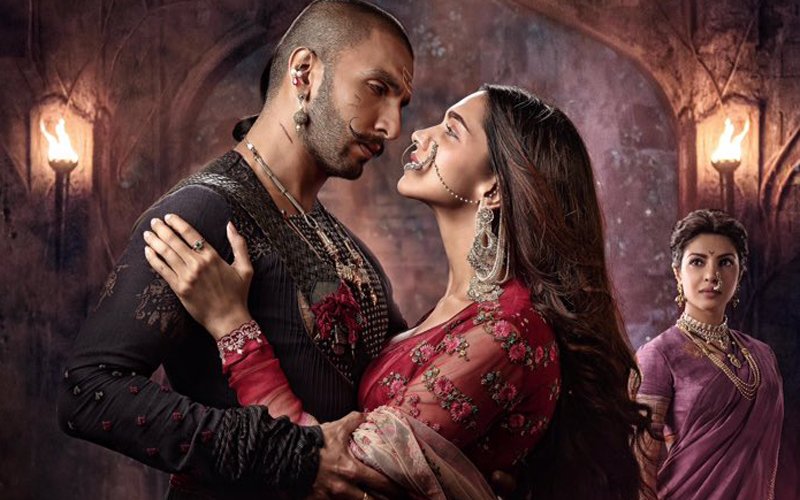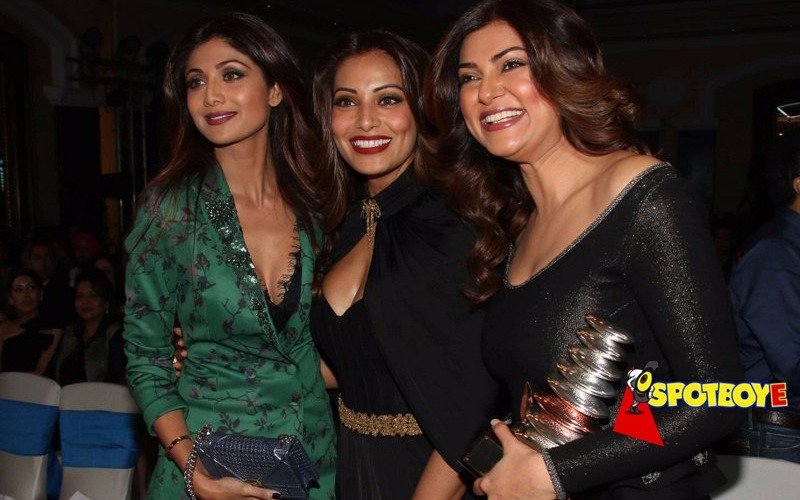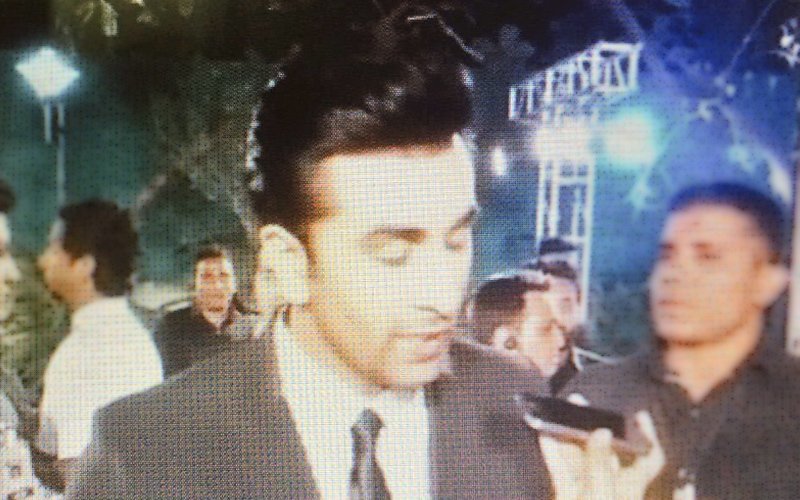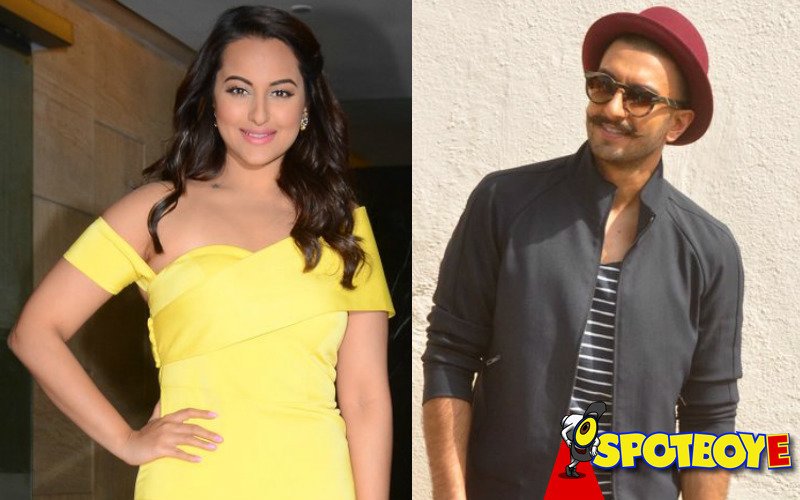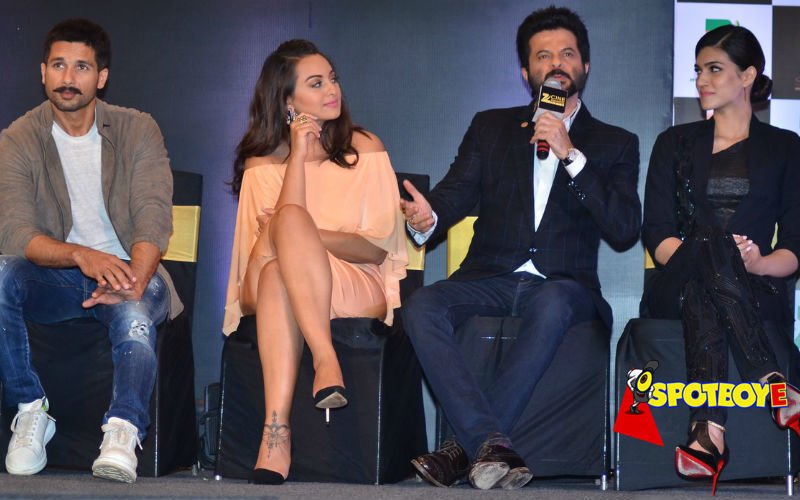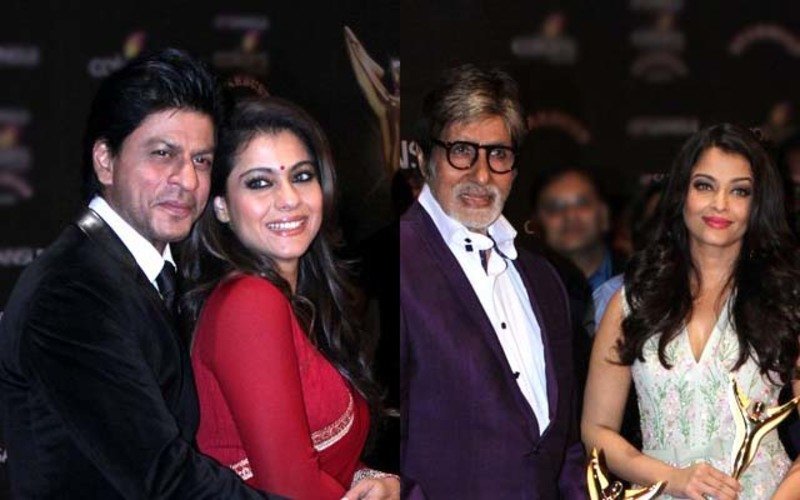Has the National Award jury become biased towards Bollywood?
Here's the latest update from the world of Bollywood. We bet you wouldn't want to miss this. Read on for details... This year’s win across 17 categories might make you think so
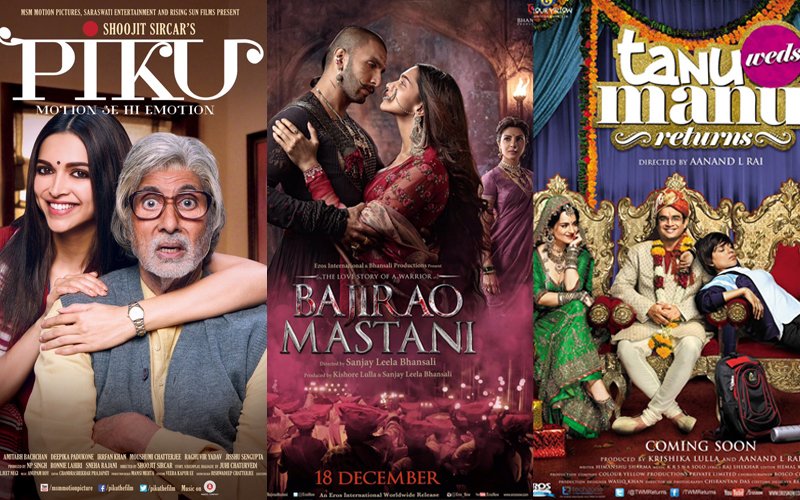
The Hindi film industry made its presence felt at the 63rd National Awards which were announced yesterday, with 19 awards across 17 categories (including two ties in two categories) to its credit. And this includes the top honours – Amitabh Bachchan won the Best Actor for Piku, Kangana Ranaut won the Best Actress for Tanu Weds Manu Returns and Sanjay Leela Bhansali was adjudged the Best Director for Bajirao Mastani.
Image Source: boldsky & lockerdome
Given Bollywood’s dominance this year, the question on everyone’s minds is: Is it a case of nepotism?
Image Source: rashtriyaujala
Or is it a case of the National Awards turning populist? After all, this year’s jury was headed by Ramesh Sippy who, many may argue, cannot think beyond mainstream Hindi cinema. 
Image Source: vebidoo
Shyam Benegal, whose films have won the national honour several times, says, “The jury’s composition and the quality of films decide the winner. If mainstream Hindi films are making the cut, it’s because of both these reasons.”
Image Source: twitter/YRF
Juhi Chaturvedi, who won two awards this year for screenplay and dialogue for Piku, believes that Bollywood has shed its ‘only masala films’ image and is venturing into braver content. And it is this very step that’s reflecting in the awards too. “The audience is evolving and we have to cater to an audience that demands great content for the price of a ticket. Not that there weren’t great writers in the past, but people like me are blessed to be working in these times when content is genuinely the king,” she exclaims.
Image Source: poojaslibrary
Discontent surfaced in 2015 when Vishal Bhardwaj’s Haider won five awards and Kangana Ranaut took home the Best Actress trophy for Queen. This year, murmurs are that the actress’ win for Tanu Weds Manu Returns hasn’t been welcomed all that warmly. It won’t be surprising if the other Bollywood wins are debated too.
Image Source: clips9 & top-movie
Back in the day, when Muzaffar Ali’s Umrao Jaan bagged four National awards in 1981, several critics grieved that Rekha had outshone Jennifer Kapoor’s performance in Aparna Sen’s 36 Chowringee Lane to win the Best Actress honour.
Image Source: frendz4m & funonline
In 2001, when Raveena Tandon and Anil Kapoor won for Daman and Pukar respectively, it was hinted that the actress’ uncle Macmohan, who was on the jury, had pushed for them.

Image Source: indicine
Adoor Gopalakrishnan had protested when Ajay Devgn was chosen for The Legend of Bhagat Singh in 2003 because Prakash Jha, who was heading the jury, was directing Devgn in Gangaajal.
Image Source: terapeak
In 2005, jury member Satyami Banerjee Dev had alleged fixing when Sanjay Leela Bhansali’s Black was chosen for Best Film. She claimed that the film was the remake of The Miracle Worker. She went to court over this, which led to a two-year break in the awards.
While there are cases that are debatable, let’s take a look at the numbers.
Over the years, out of 63 Best Film Awards, only 11 have been bagged by Hindi films, of which only a couple have gone to mainstream movies like Page 3.
Image Source: cloudpix
Of the last 48 times, Hindi film actors have won 23 Best Actor awards, of which a half has been won by mainstream heroes like Amitabh Bachchan, Ajay Devgn, Anil Kapoor and Saif Ali Khan.
Image Source: odedara & coreroar
Similarly, Hindi film heroines have won 21 Best Actress awards in the last 48 times. This includes only five mainstream wins including Tabu, Kangana and Priyanka Chopra.
The Best Popular Film of the Year is the only category that has been dominated by Hindi films.
Detractors may argue that this year’s 15-award sweep makes for a strong case for the jury’s nepotism.
Image Source: zimbio
But Omung Kumar feels that saying that the jury has softened towards Bollywood, is simply stripping the industry of its due credit. The director, whose debut film Mary Kom won a National Award last year, believes that mainstream Hindi films have upped their game. “There was a time when only art films and parallel cinema were competing at the National Awards. Now, the jury has begun to notice content-driven mainstream Hindi films,” he says. 
Image Source: fillum
Madhur Bhandarkar, one of the first mainstream directors whose films made a mark at the National Awards, adds that Bollywood has revamped its way of functioning over the last two years and that’s bearing results. “Content is getting better. So, we are shining – it’s as simple as that,” he states.
Is it really as simple as that? Has Bollywood indeed upped its game? Or has the National Award jury chosen to appease the biggest entertainment industry of the country and lost its sanctity in the bargain?
Thumbnail Image Source: twitter/Eros & YRF
